Looking Past Dubai’s Fancy Exterior: The Hidden Side Of The City Of Gold
Dubai is well known as a city of wealth and beauty. It is often referred to as a city of dreams, with towering skyscrapers, luxurious shopping malls, ports, beaches, and an extremely lavish lifestyle.
However, behind this glossy façade is a dark side carefully hidden from the outside world, one that most don’t talk about. What exactly is Dubai hiding? Let’s find out.
The Small Town of Dubai
About thirty years ago, almost all of Dubai was a desert. Only tumbleweeds, cactuses, and scorpions occupied the desert lands. The downtown, however, had traces of the town Dubai used to be.
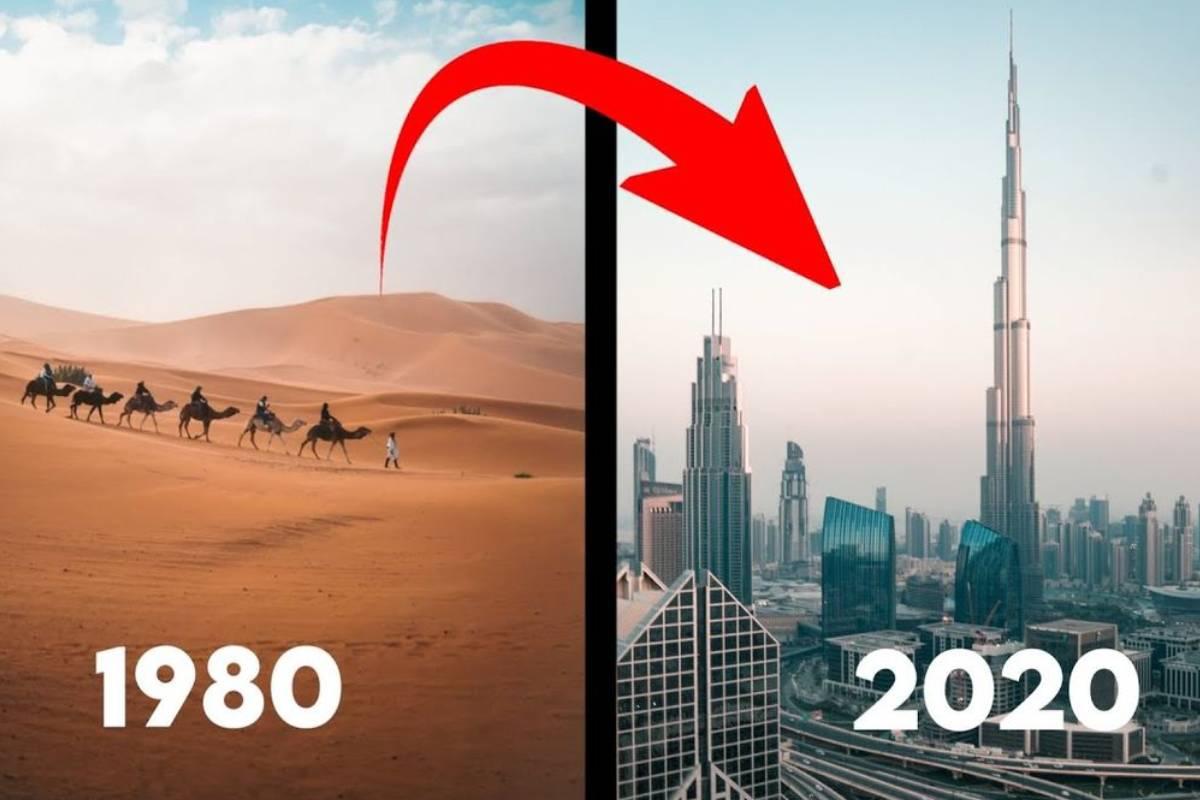
Source: MrShadab72/Pinterest
In the 18th century, a small village was built. People in this village would dive off the coast in search of pearls. This soon became popular, and citizens from neighboring countries started pouring in. This was when the British Empire came knocking.
The Formation of the UAE
Dubai was seized by the British Empire in 1971. The town allied with the six surrounding states and became the United Arab Emirates (UAE). The British became exhausted, and they left just as oil was discovered in the city.
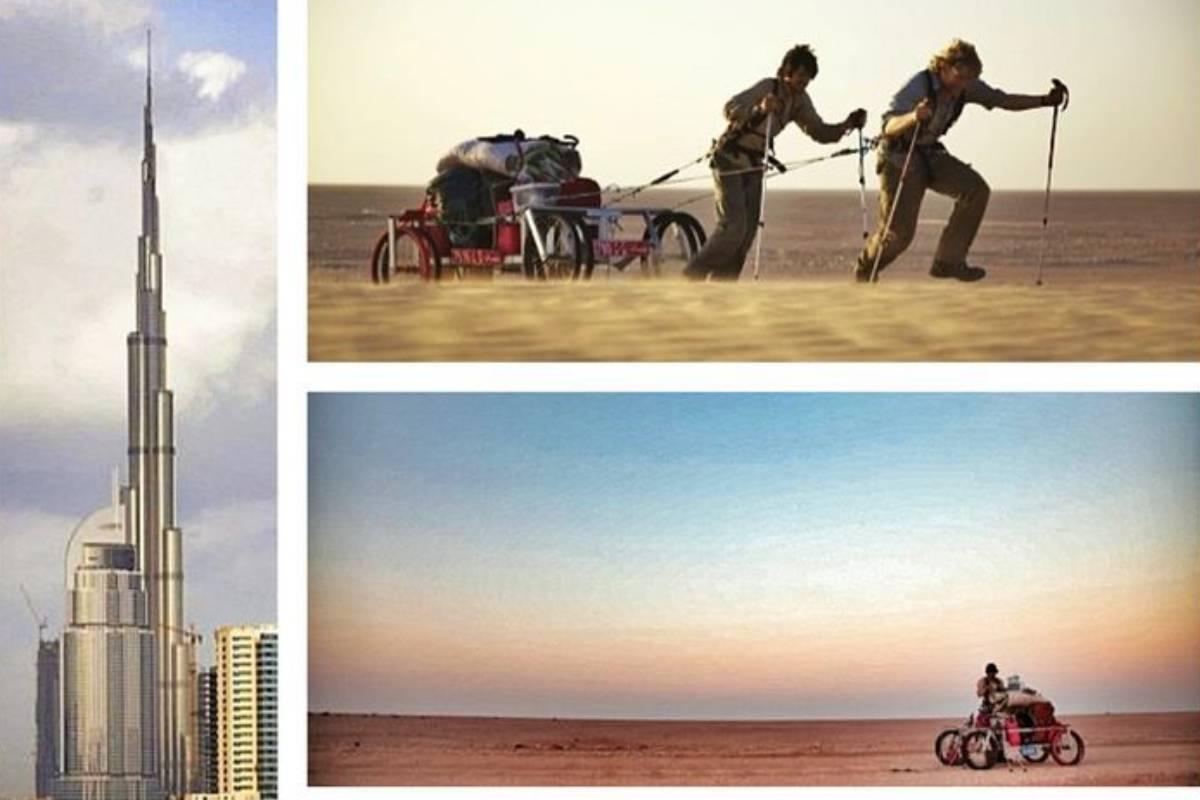
Source: Flickr/Pinterest
The Sheikhs who found themselves in charge were faced with a dilemma. They were mostly illiterate nomads who spent their lives with camels in the desert.
A Booming Desert
Compared to the neighboring Abu Dhabi, Dubai had little quantity of oil, which made the then ruler of Dubai, Sheikh Maktoum decide to use the revenue from the quantity of oil they had to build something that would last. People rushed into Dubai in huge numbers, swamping the local population. He resolved to make the desert boom.
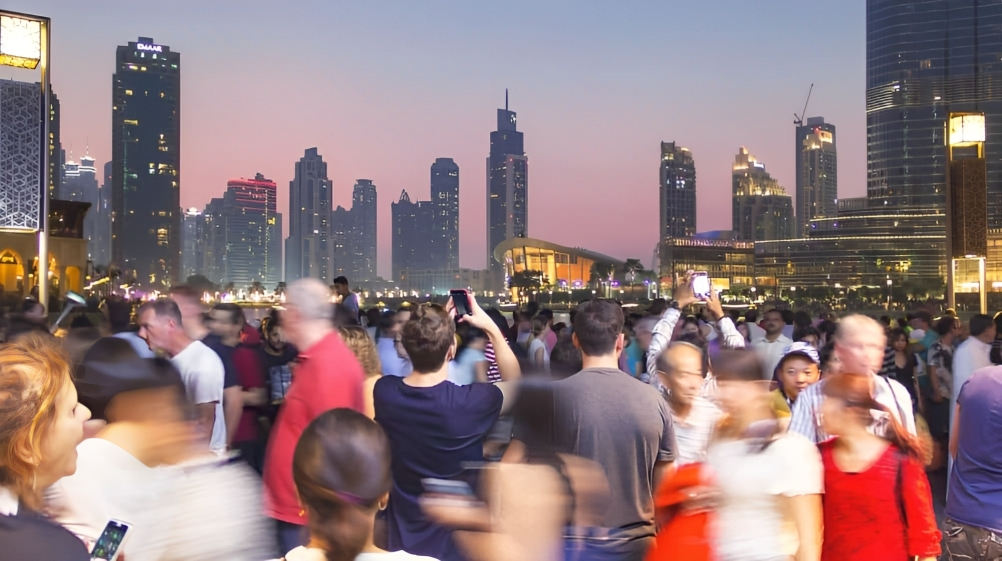
Source: propertyfinder.ae
He decided to build a city that would be the center of tourism and financial services. The city’s aim was to suck up cash and talent from other parts of the world, and he invited everyone to come tax-free.
A City Emerging from the Dunes
Foreigners from other parts of the world make up five percent of the country’s population. A city seemed to emerge from the sand dunes in three decades. They rapidly moved from the 18th century to the 21st contort in just a single generation.
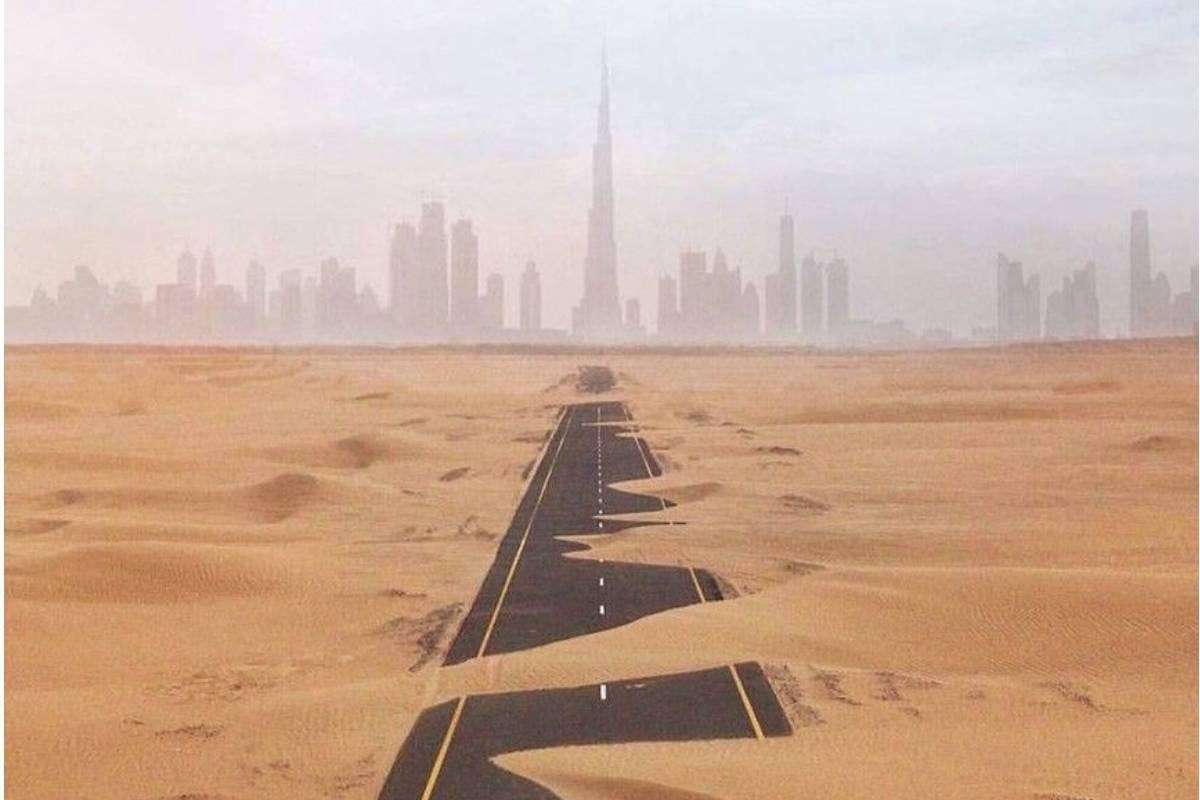
Source: GabrielTercero/Pinterest
According to tour guides, the city’s motto was “Open Doors, Open Minds.” These guides would talk in honeyed tones, praising the Sheikh, giving him credit for the booming economy and erecting prominent buildings, but they were so far from the truth. The Sheikh didn’t build the city; the enslaved people did.
Hidden in plain sight
The glamorous city of Dubai was divided into three, the Expats, the Emiratis, headed by Sheikh Mohammed, and then the foreign underclass, the laborers trapped in the city they built. The best place to hide anything is to hide it in plain sight, and that is what Dubai did to these supposed underclass foreigners.
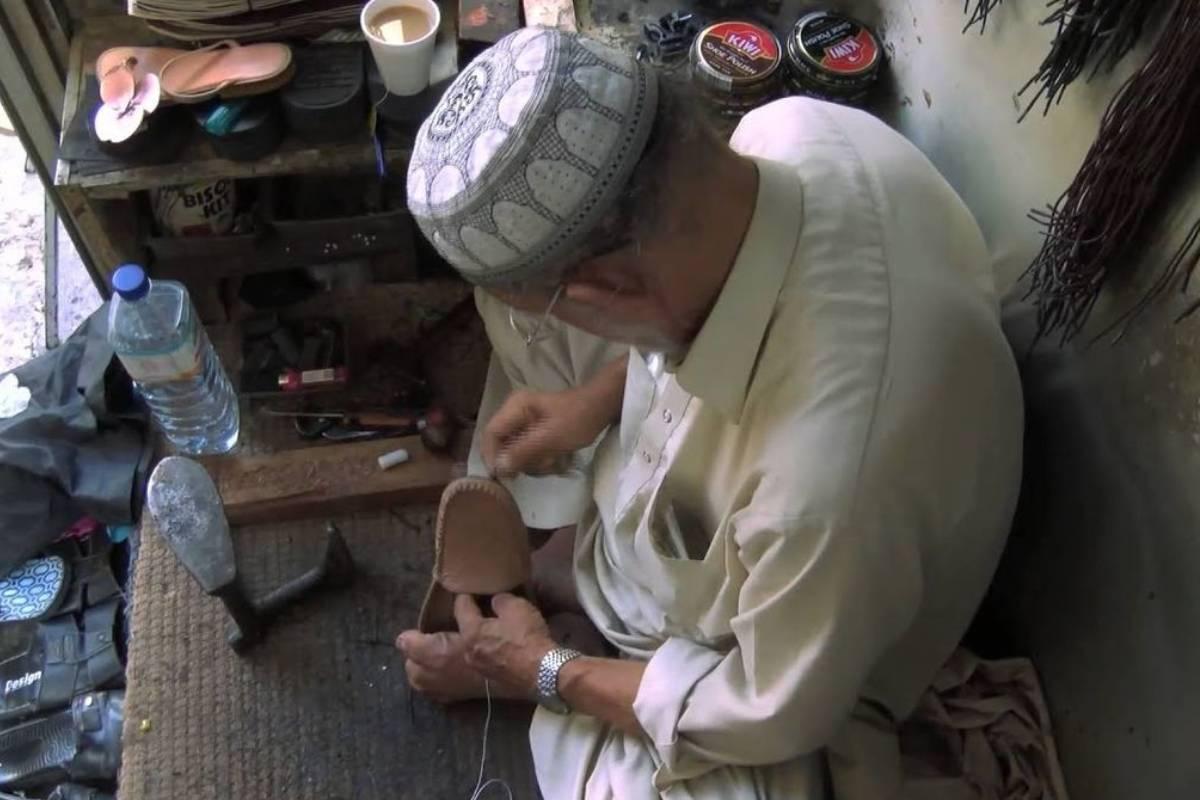
Source: HowardJohnson/Pinterest
They can be seen everywhere in dirty blue uniforms, being treated poorly by superiors, but visitors are trained not to look. The continuous “The Sheikh built this and that” mantra keeps tourists and visitors from looking.
How Did the Workers Get Here?
While Dubai seems dazzling and sparkling, there are ugly realities that many don’t want to address. One of the workers from India said, “To come here, they would say Dubai is heaven, and then you get here and realize it’s not like that at all.”
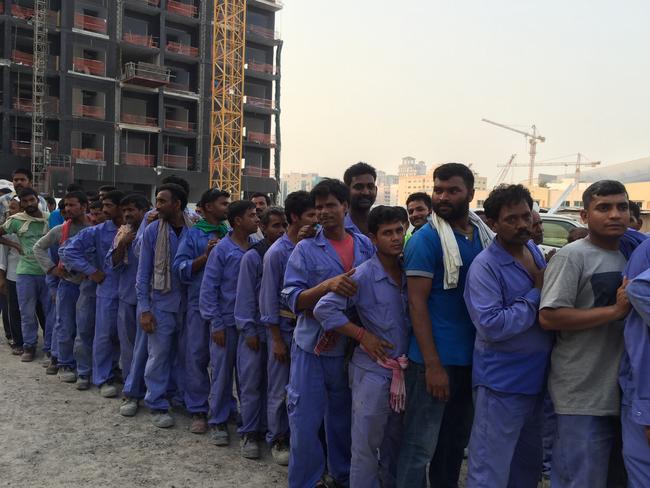
Source: dulich.dantri.com.vn
In his case, an employment agent went to his village and told the men in the town that they could earn high wages that could improve their lives.
Preparing For Paradise
The men were told they would be working 9-5 on construction projects. They believed that they would be fed and treated well with reasonable accommodation. All they had to do was pay an up-front fee that they could quickly pay off in six months.
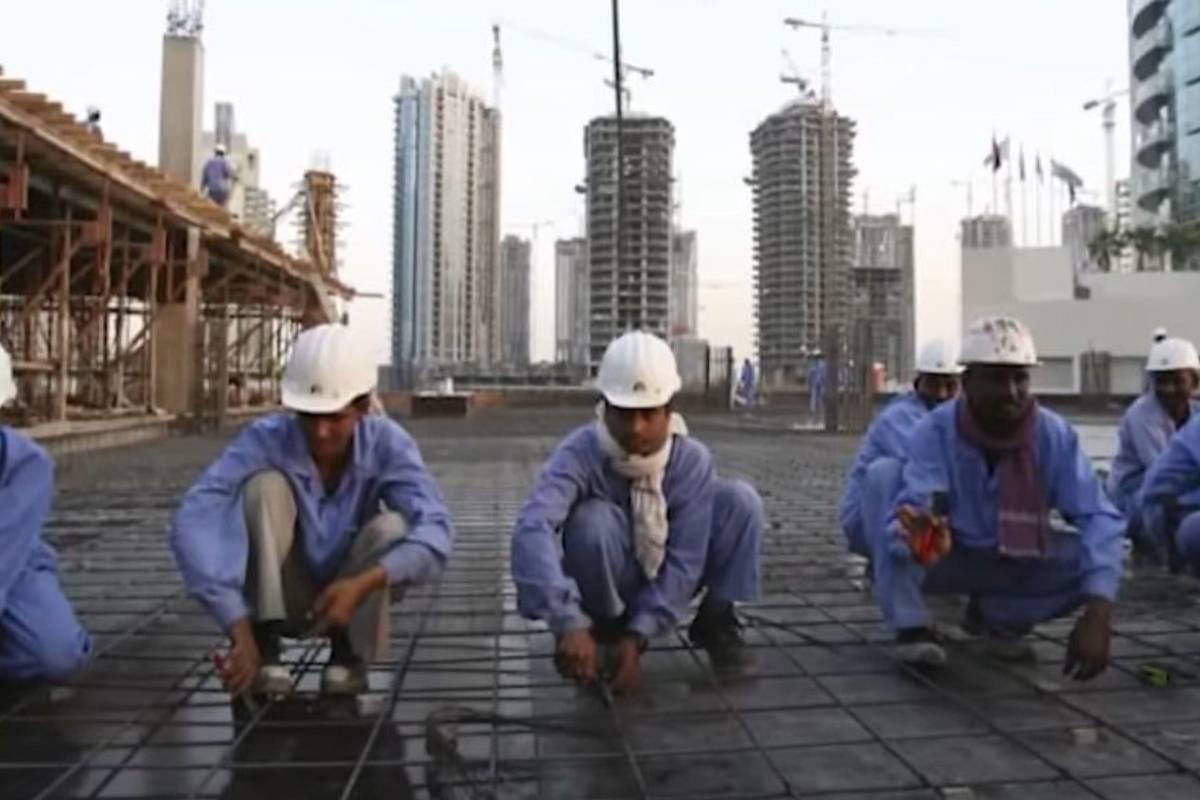
Source: AfricaReloaded/YouTube
Many sold their family land, took out loans, and prepared for paradise. They were disappointed in getting to the so-called heaven.
The Price of Progress
On getting to the airport, several workers have their passports seized and are forced to work long hours beneath an unrelenting sun for very little pay. The worker from India also had his passport taken away from him.
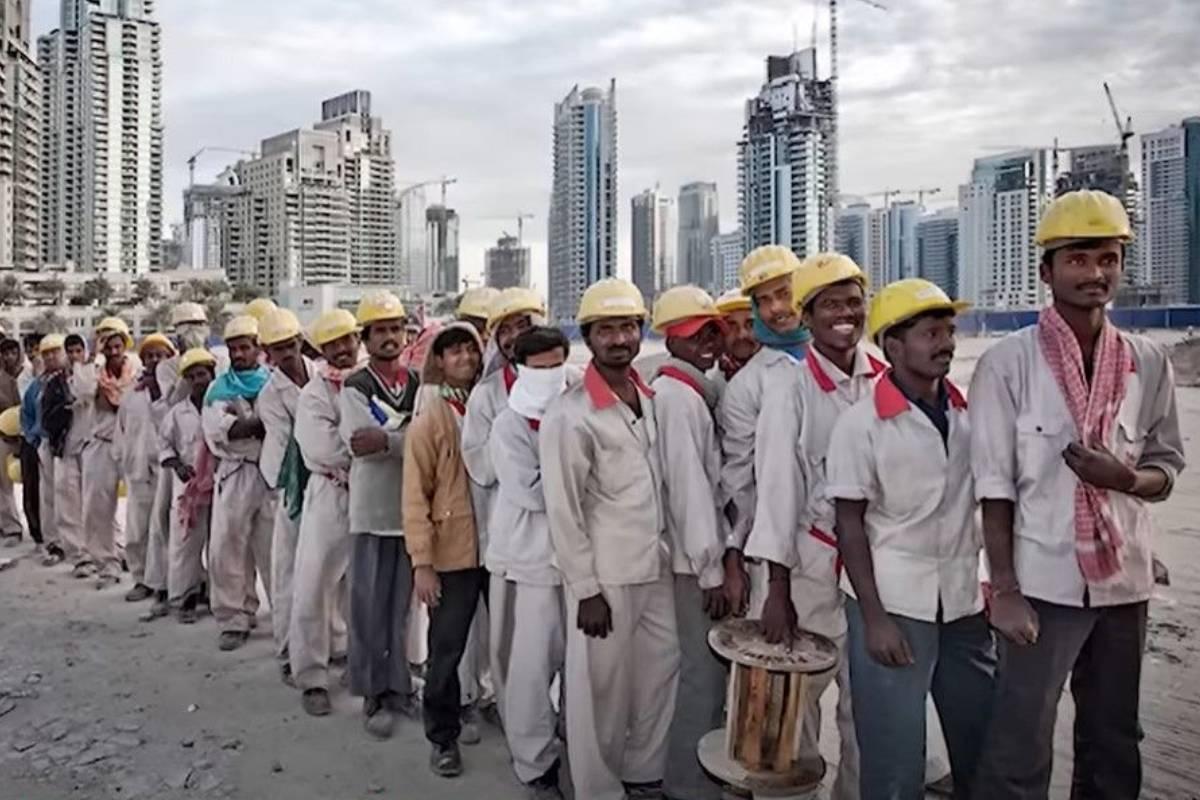
Source: AfricaReloaded/YouTube
He was told he would be working 14 hours a day in the desert heat, the same weather condition that was given as a reason to tourists not to stay. Tourists are always advised not to stay outside for five minutes in the summer because the temperature goes as high as 131 degrees Fahrenheit.
Failed Promises
This worker was going to be paid only a quarter of the wage he was promised at first. He said all the workers were told that if they didn’t like the working conditions, they could go back home.
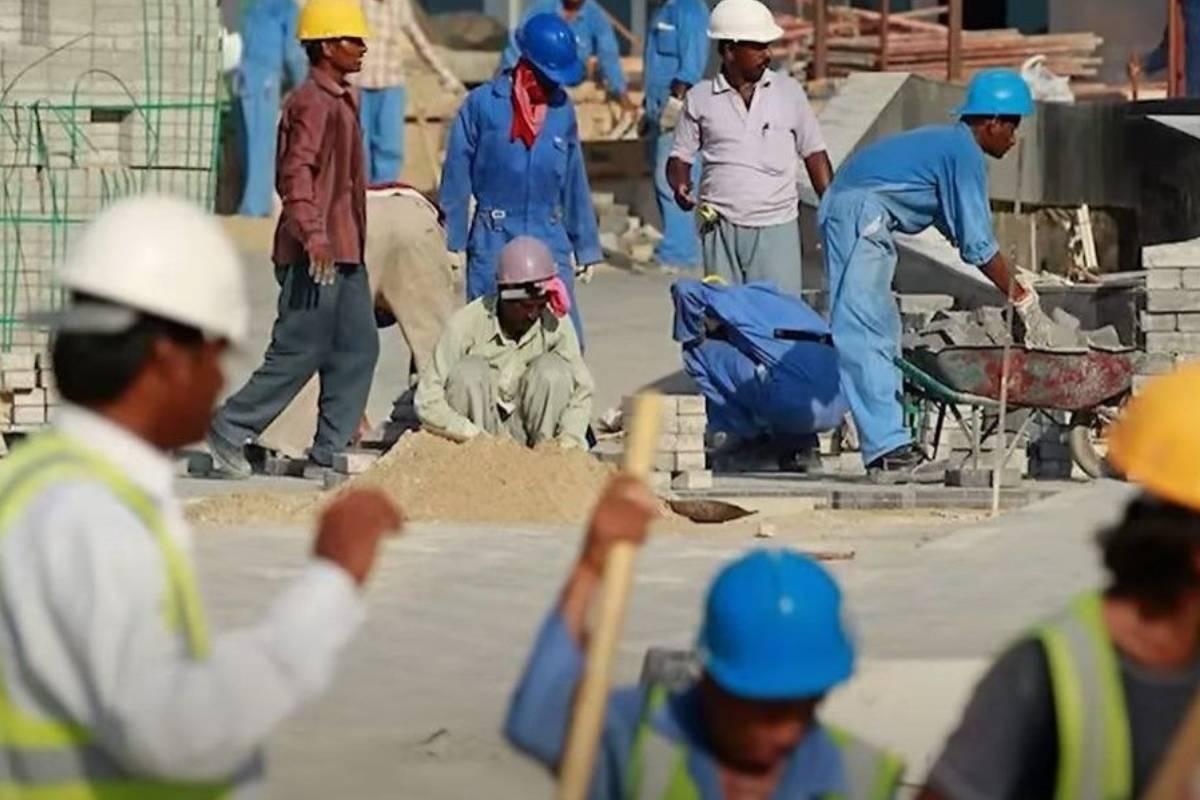
Source: AfricaReloaded/YouTube
But none of them could go home because they already had their passports seized and they had no money—a very sad plight.
Poor Living Conditions
The men panicked. Back home, their families were happy with their supposed “good fortune” and expecting money.
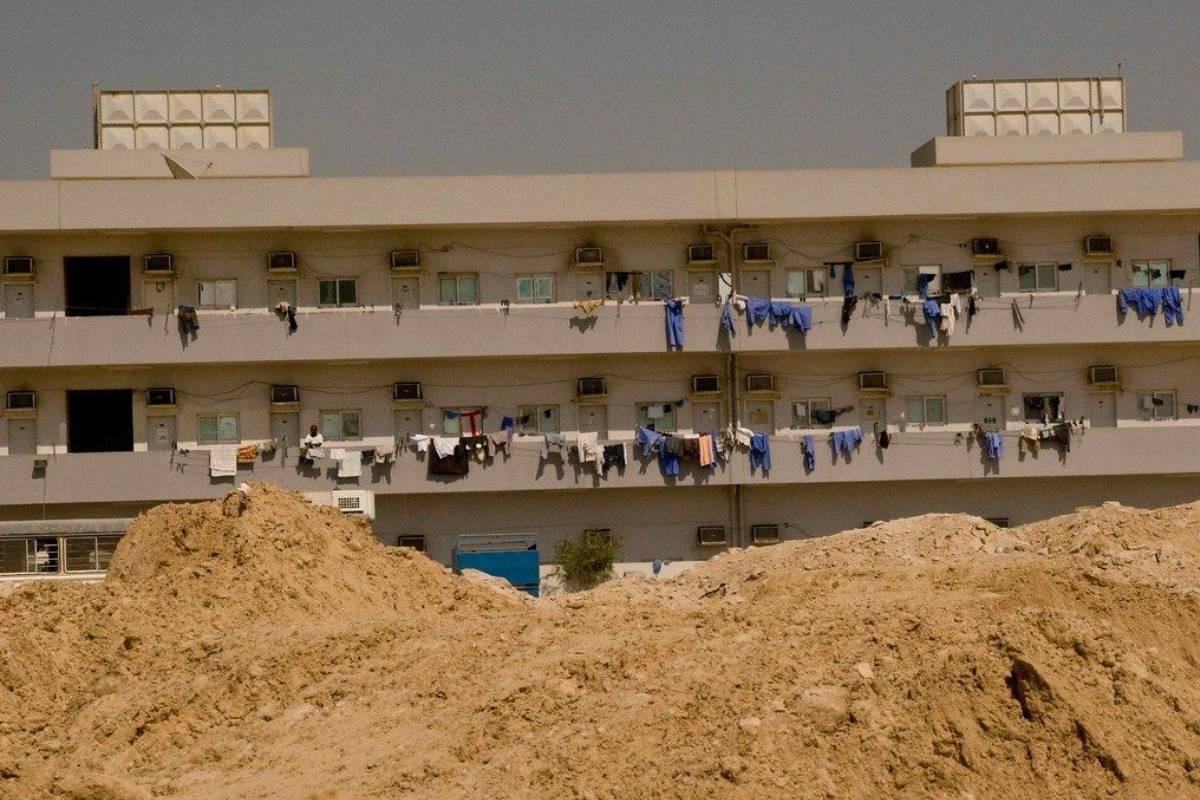
Source: JuanSalvadorSerranoLopez/Flickr
Most of them would earn less than they made back in their homes, and to get back what they spent on getting to Dubai, they would have to work tirelessly for two years. But it wasn’t just the work; they also had to live in poor conditions.
Women Must Follow Strict Rules When Visiting
When people visit Dubai, there are strict rules they must obey. For female tourists, it’s a bit more extreme.
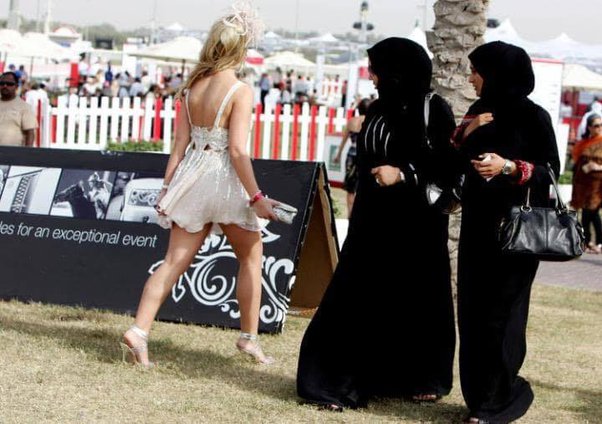
Source: fb.ru
Women can’t wear any attire deemed disrespectful or revealing, such as bikinis, short shorts, or skirts in the Mall. However, wearing swimsuits and bikinis is permissible, but only at the beach. It’s typically best to be on the safe side and not wear anything too suggestive.
Clouds Filled with Black Flies
In Sonapur, each of the rooms these workers live in is a tiny, poky concrete cell with triple-decker bunk beds, and about 11 men live in each of these cells. These overcrowded cells had lavatories in a corner, and the closeness of the toilets with piled-up belongings and holes in the ground filled with excrement make the rooms stink.
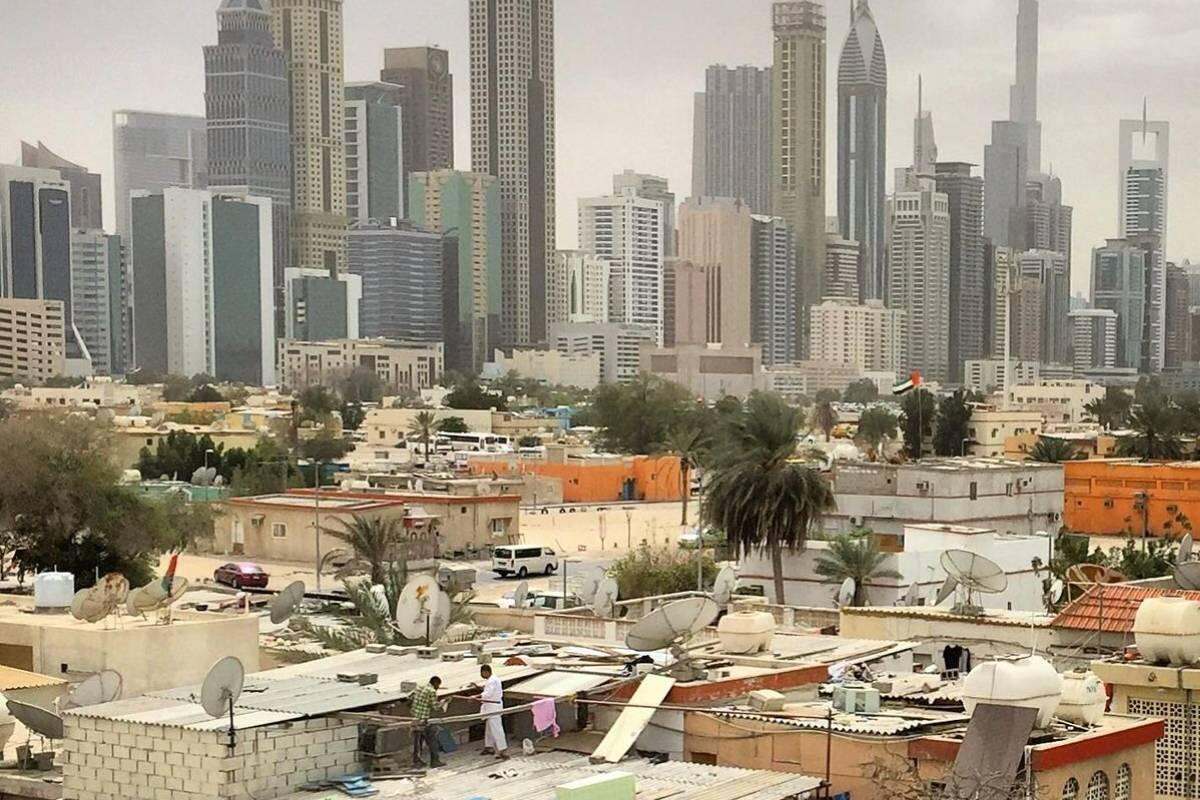
Source: UrbanHell/Reddit
With no air conditioning or fans, clouds filled with black flies, and unbearable heat, all the men do all night is scratch and sweat instead of sleeping.
Unfavorable Labor Laws
In summer, many of them sleep on the floor or on the roof and other places where they can access some breeze. Water is being delivered to them in white containers.
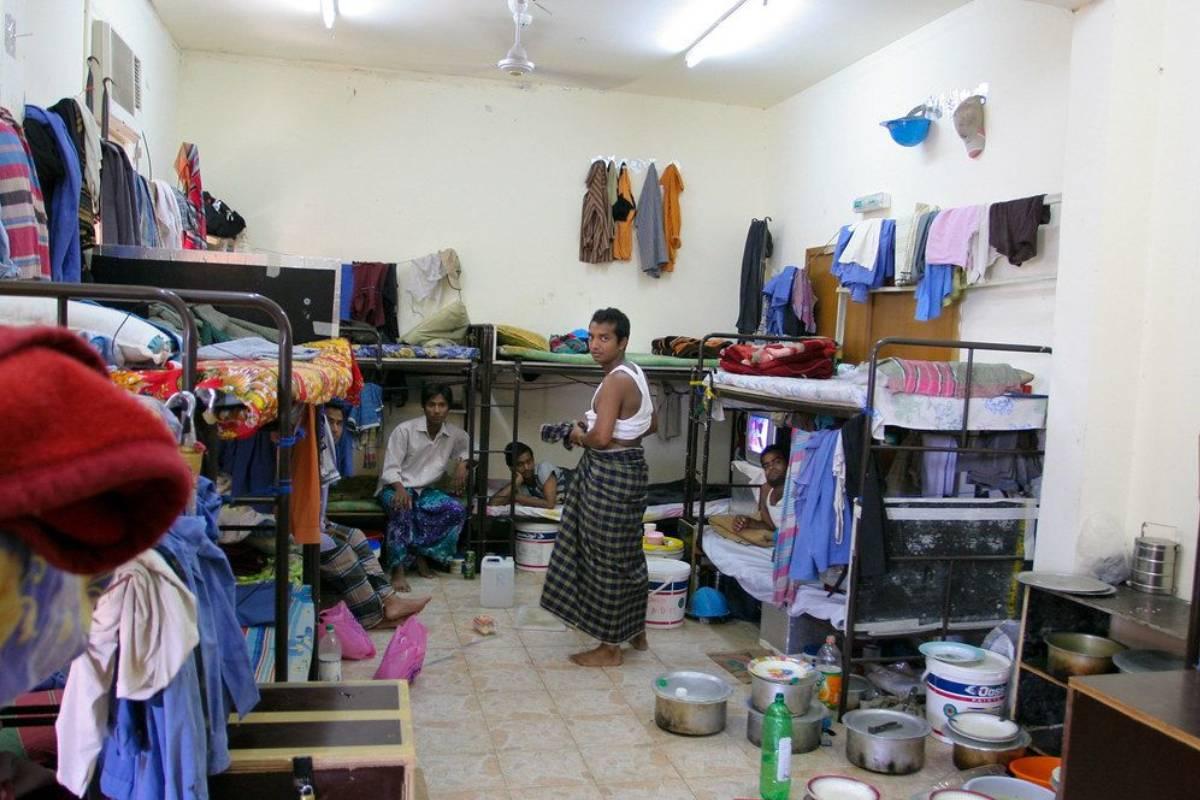
Source: JulienWarnand/Flickr
They stated that the water tasted like salt, and it made them sick, but being in the desert, they had no other option.
Human Trafficking
Dubai has an awful reputation for modern slavery via labor and prostitution. From the recruitment, transportation, transfer, kidnapping, and defrauding of humans, Dubai has one of the most cruel systems of human trafficking.
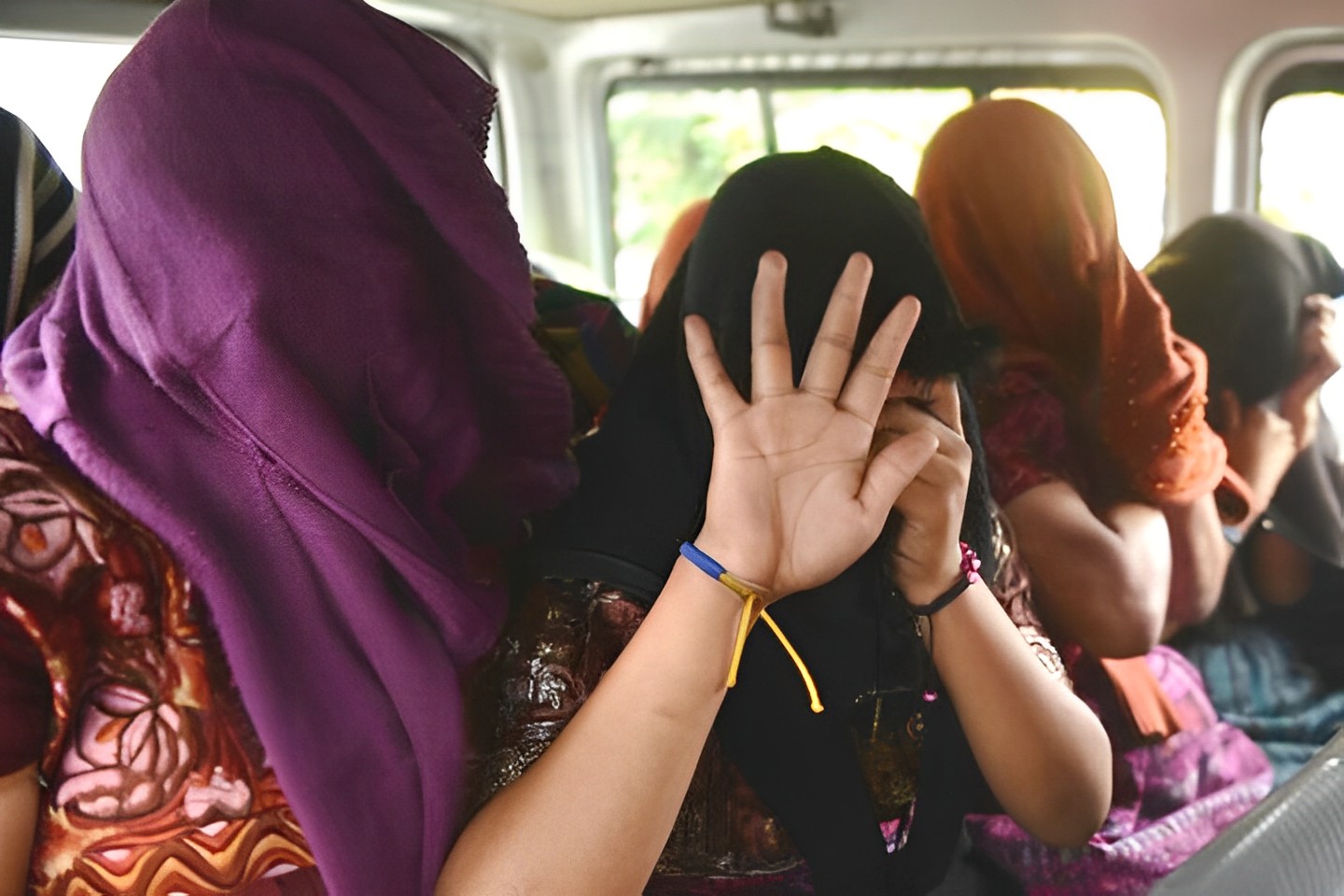
Source: rtvonline.com
Overall, the UAE doesn’t even meet the minimal standards for fighting against human trafficking, and, often, the government only lends a mere slap on the wrist for offenders.
An Unrelenting Sun
The poor workers need as much water as possible because most carry over 100 pounds of cement in the worst kind of heat. The sun practically causes almost every drop of water in their bodies to evaporate. They sweat so much that they can’t urinate for days or weeks.
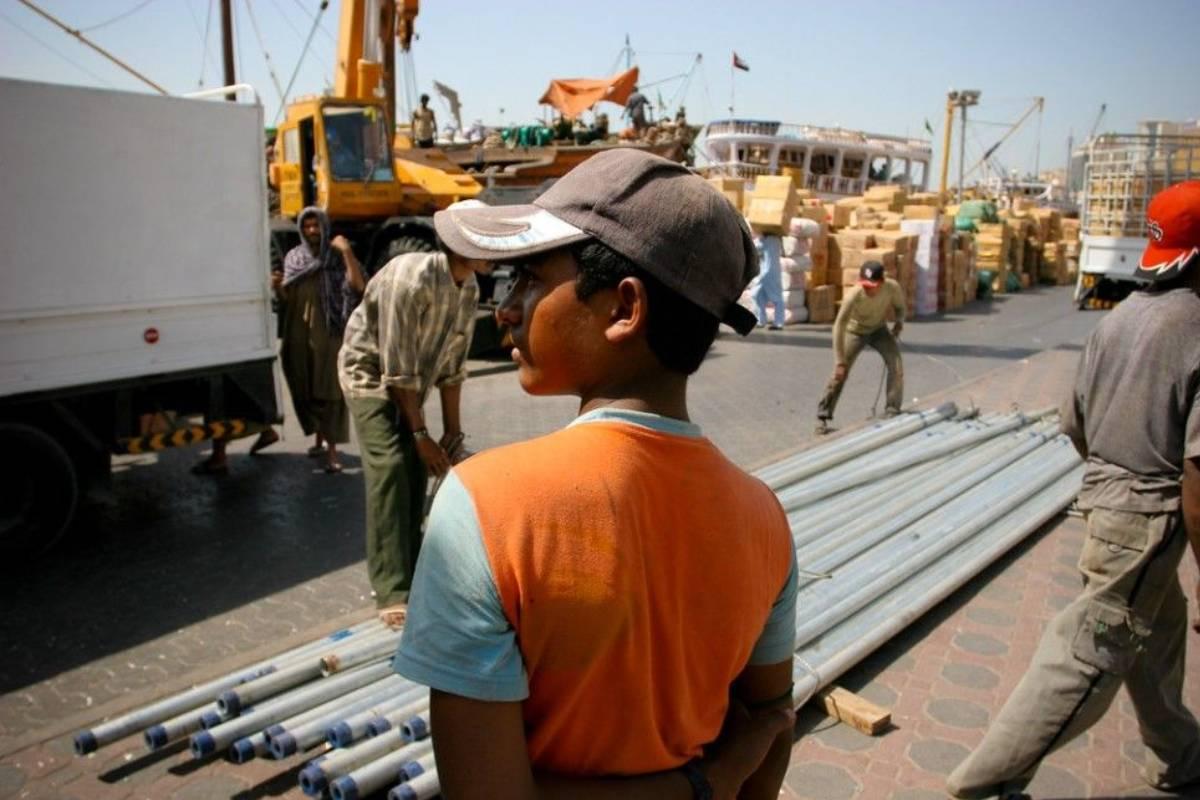
Source: JulienWarnand/Flickr
They eventually become dizzy and sick but are not allowed to stop except for the one-hour break they get in the afternoon.
Show No Emotions
These workers don’t stop working even when they are sick because if they do, their wages will be reduced by their employers. And if there’s a reduction in their pay, they would be trapped in their situation even longer.
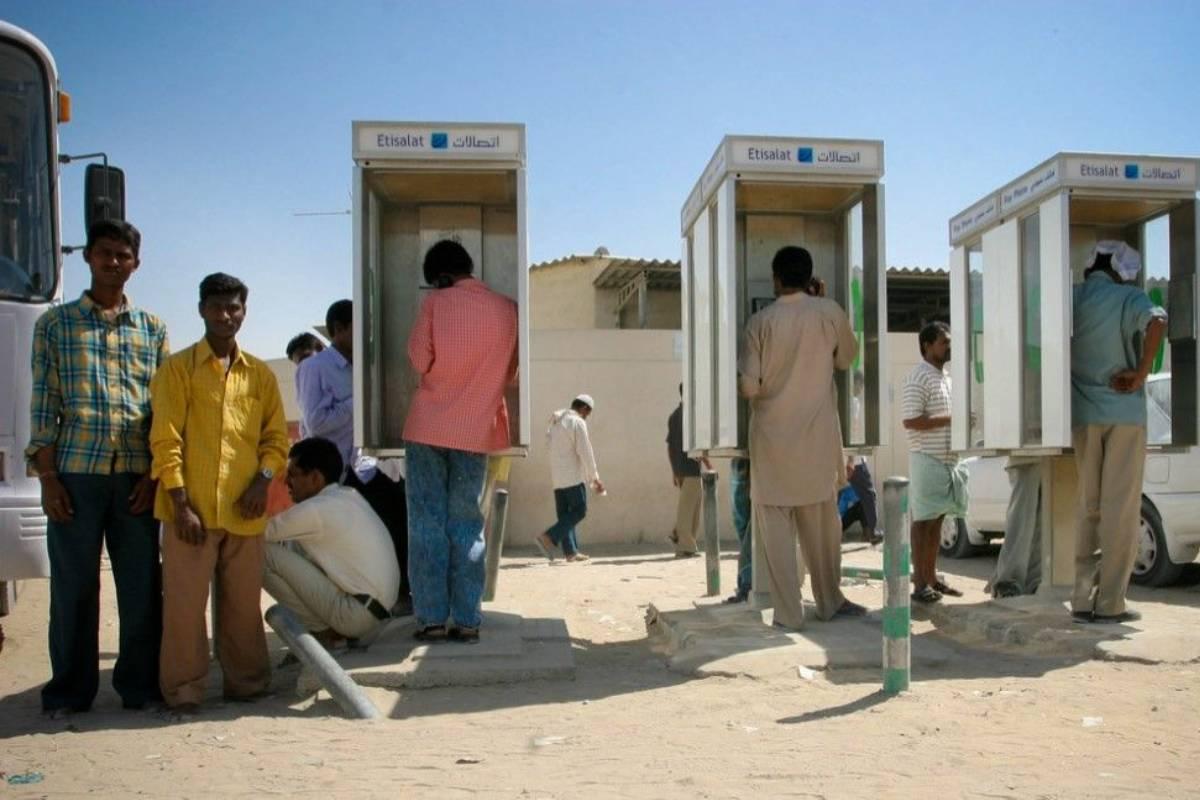
Source: JulienWarnand/Pinterest
These foreign workers cannot carelessly show emotions. They cannot get angry; showing emotions like that will make them end up in jail.
Industrial Action
Some workers took industrial action against their employers because they were not paid for four months. The Dubai police besieged their camps with razor-wire water cannons and blasted them out of their houses and back to work.
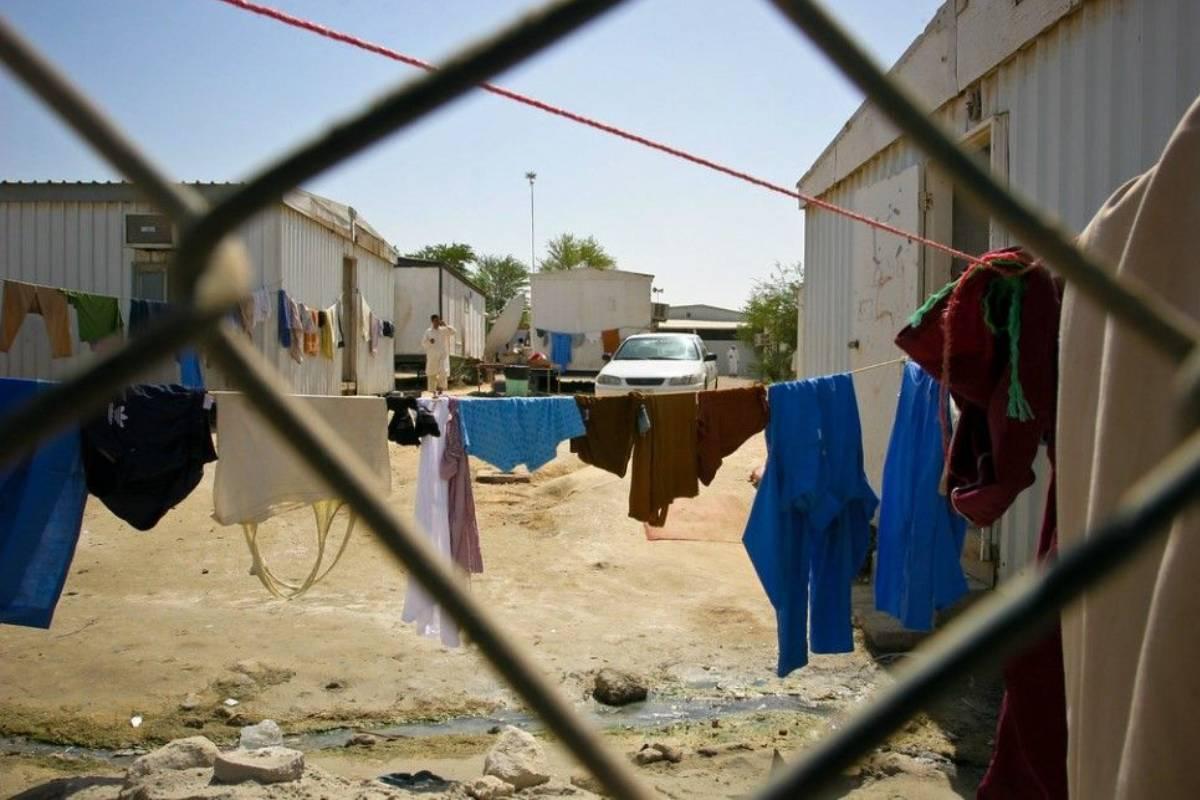
Source: JuianWarnand/Flickr
The instigators of the industrial action were put in jail. When asked if they regret leaving their homes for Dubai, the men said they didn’t want to think about regret.
The Dark Underbelly of Dubai
These workers rely solely on their employers. They could not even grow food because the land was not suitable for farming. The expats who enjoy high incomes will most likely never experience this dark side of Dubai.
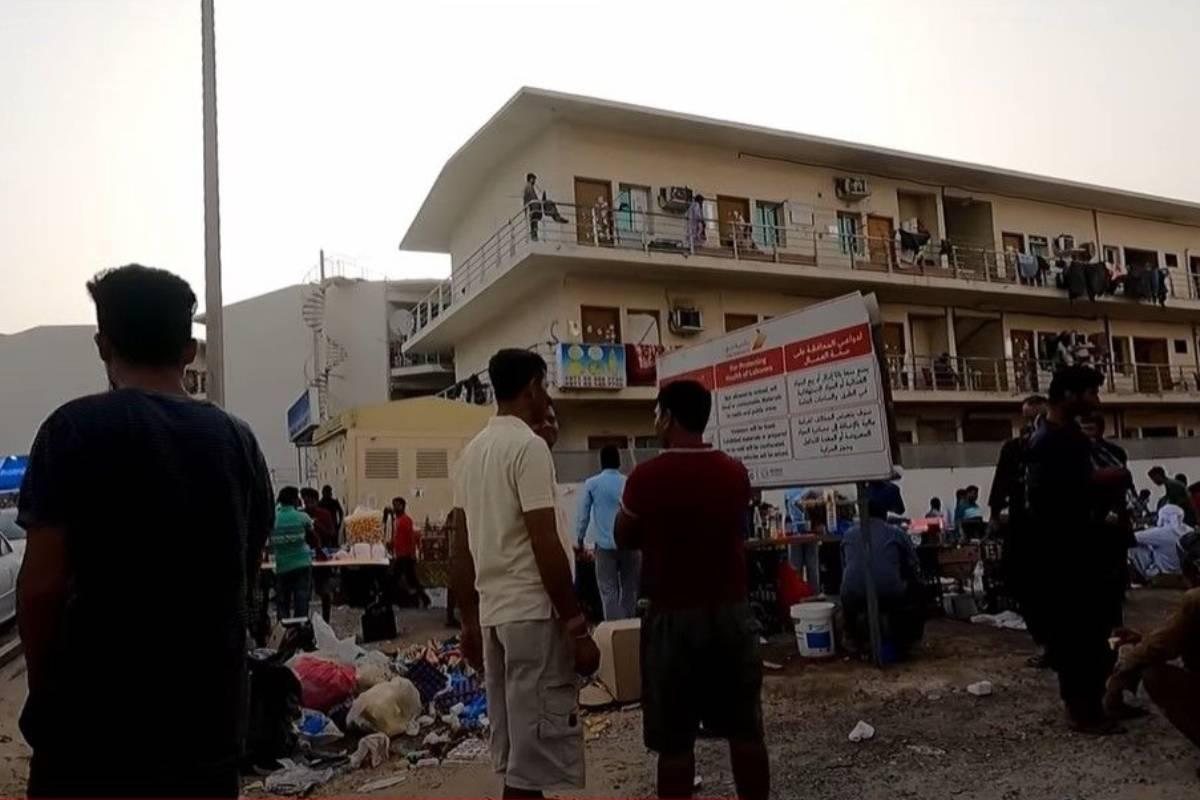
Source: TeeTravels/Youtube
These laborers are hidden from the media, working under unfavorable conditions. Most tourists were also oblivious to these people and couldn’t get to Sonapur as it was not even on the map.
Prostitution Rates Remain High
Even though both female and male prostitution is illegal in Dubai, it still remains an alarming issue in the thriving city. It’s also surprisingly easy to find, specifically in the city’s red-light districts.
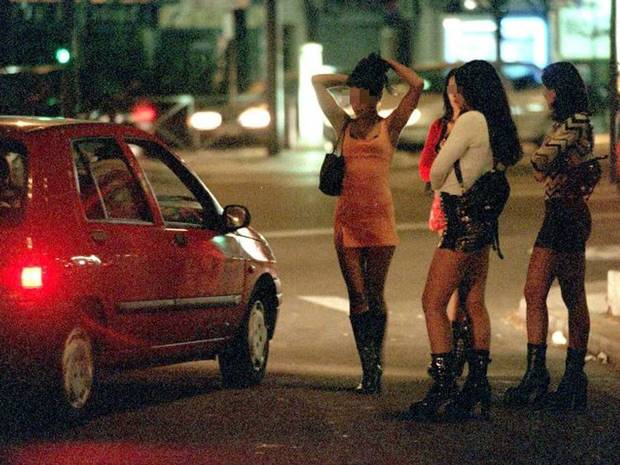
Source: kienthuc.net.vn
When the city was only a tiny fishing village in the 1950s and 1960s, prostitution was happening. Primarily, the women participated in the trade to support their families and themselves.
A Determined Photographer
An Iranian photographer determinedly visited Sonapur, and he captured the desperate lives of these South Asian laborers who traveled to build a better future for their families. When the photographer got to Sonapur, he saw several men sitting around the courtyard in broken furniture with stray animals around them, cooking in dirty kitchens with gas cylinders in terrible conditions.
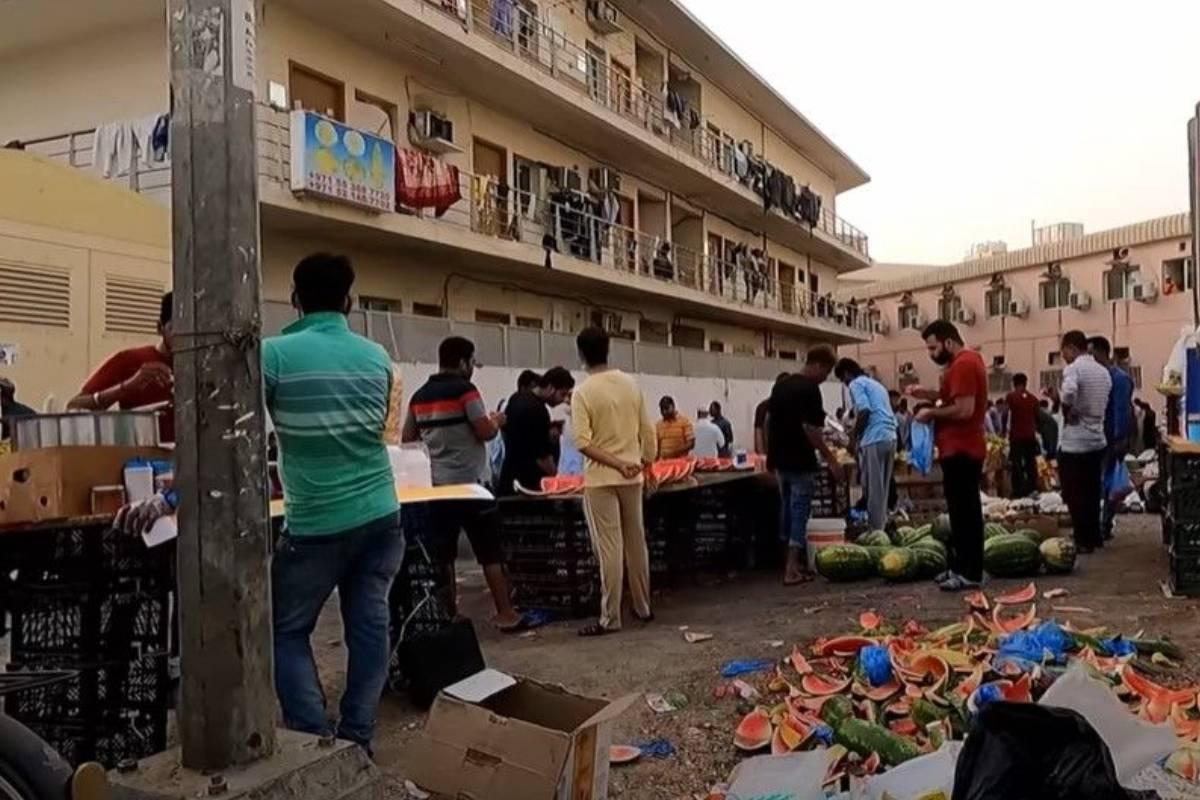
Source: TeeTravels/YouTube
The photographer said he was so moved after seeing their situation that he created a photo series.
Nocturnal Pictures
“I did not try to get permission since the area was restricted to the public, and I was not sure I would be successful since UAE does not wish to show this part of their country,” the photographer stated.
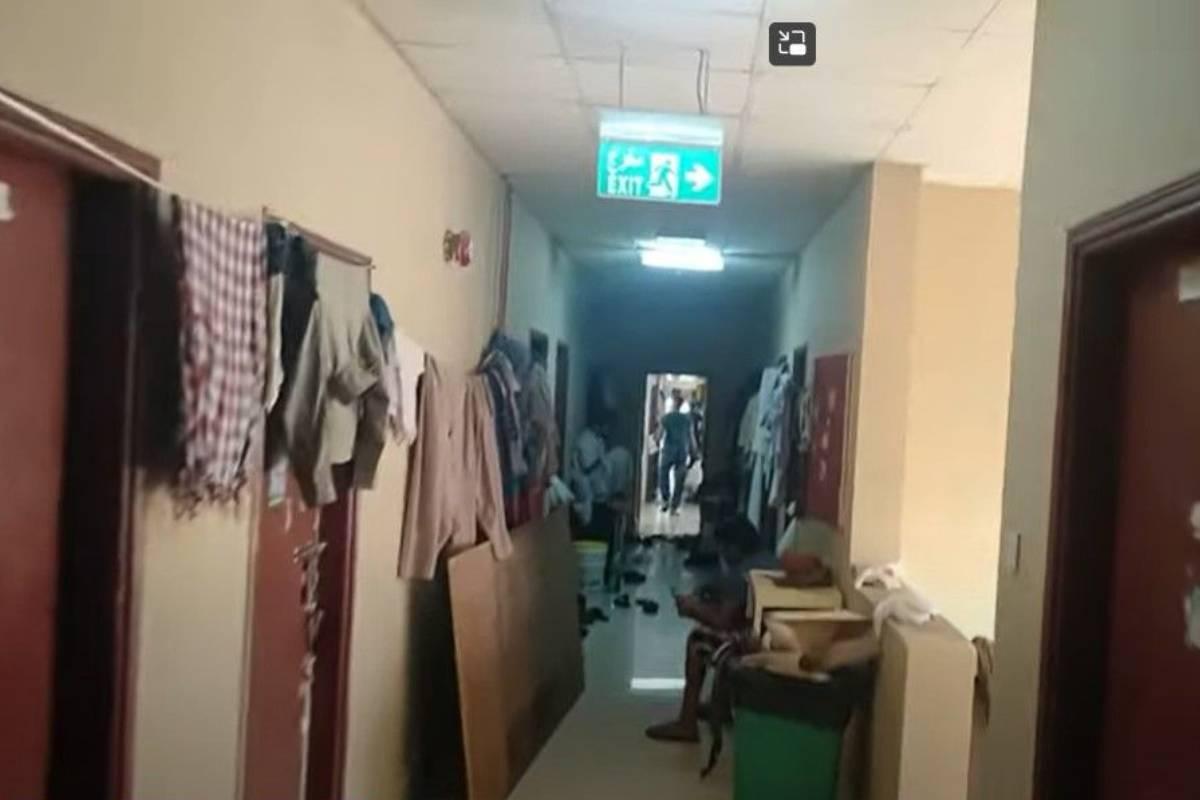
Source: Dubairati/YouTube
He decided to hide from security by taking pictures at night. As he started meeting the laborers and getting them to know him, he realized they were scared of him because they thought he was from the government.
Hidden Agenda
Most of the time, this photographer slept in his car and waited until it was dark so he could achieve his goal. He eventually got arrested and questioned by security.
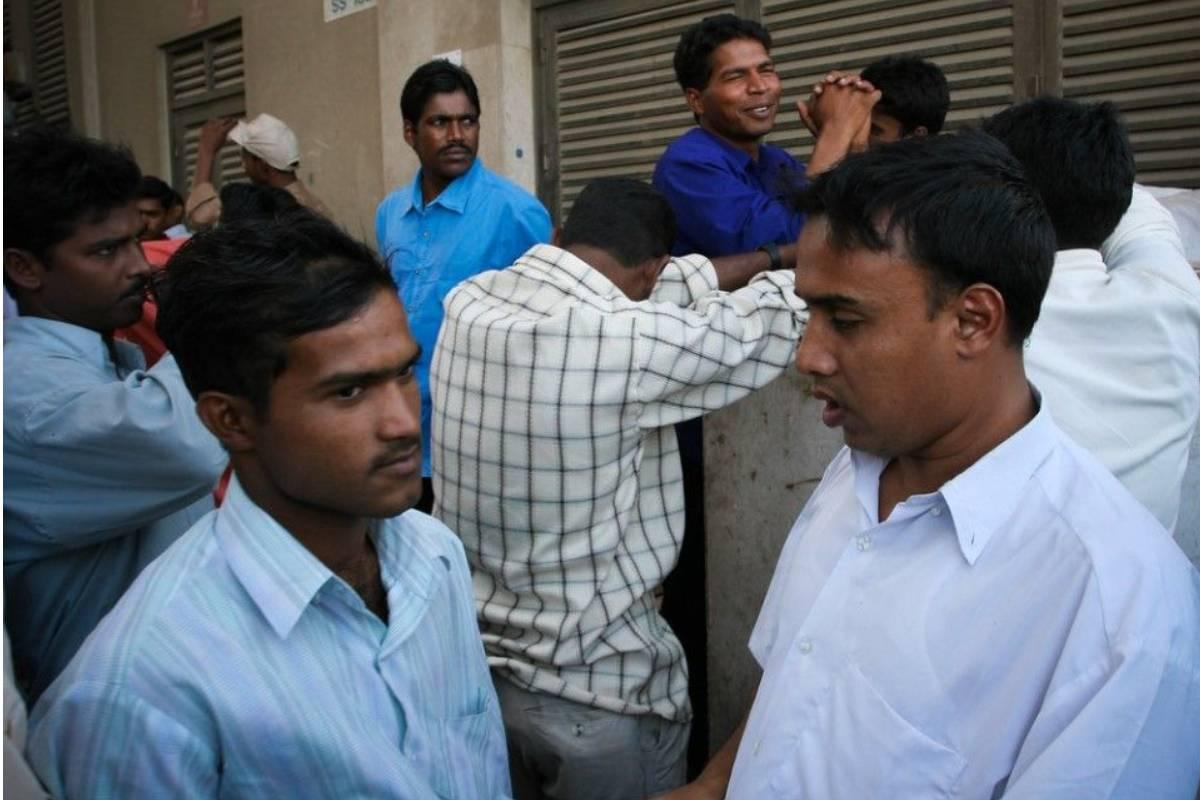
Source: JulienWarnand/Flickr
He got out of the situation by pretending to be a lost tourist so they would release him and not find out about his hidden agenda, all because the area was forbidden to photographers.
Human Rights
The photographer hopes his series will help people think twice about what is happening around them and encourage people to help these workers.
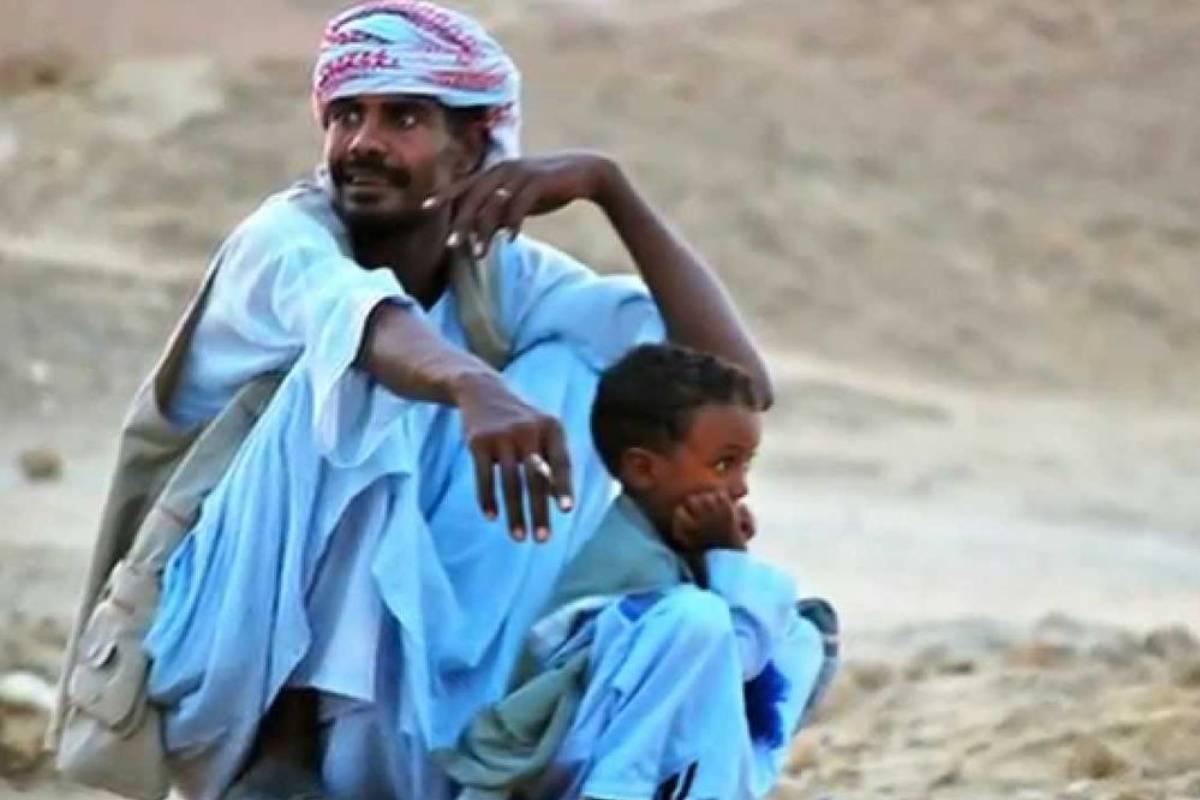
Source: ValerieTaras/YouTube
He believes the way the workers are being treated is a violation of basic human rights, which is not supposed to happen in this time and era.
Deliberate Accidents
A British man who worked on project construction said there are huge numbers of suicides in the campsites in Sonapur and at the construction sites, but the city does not report them.
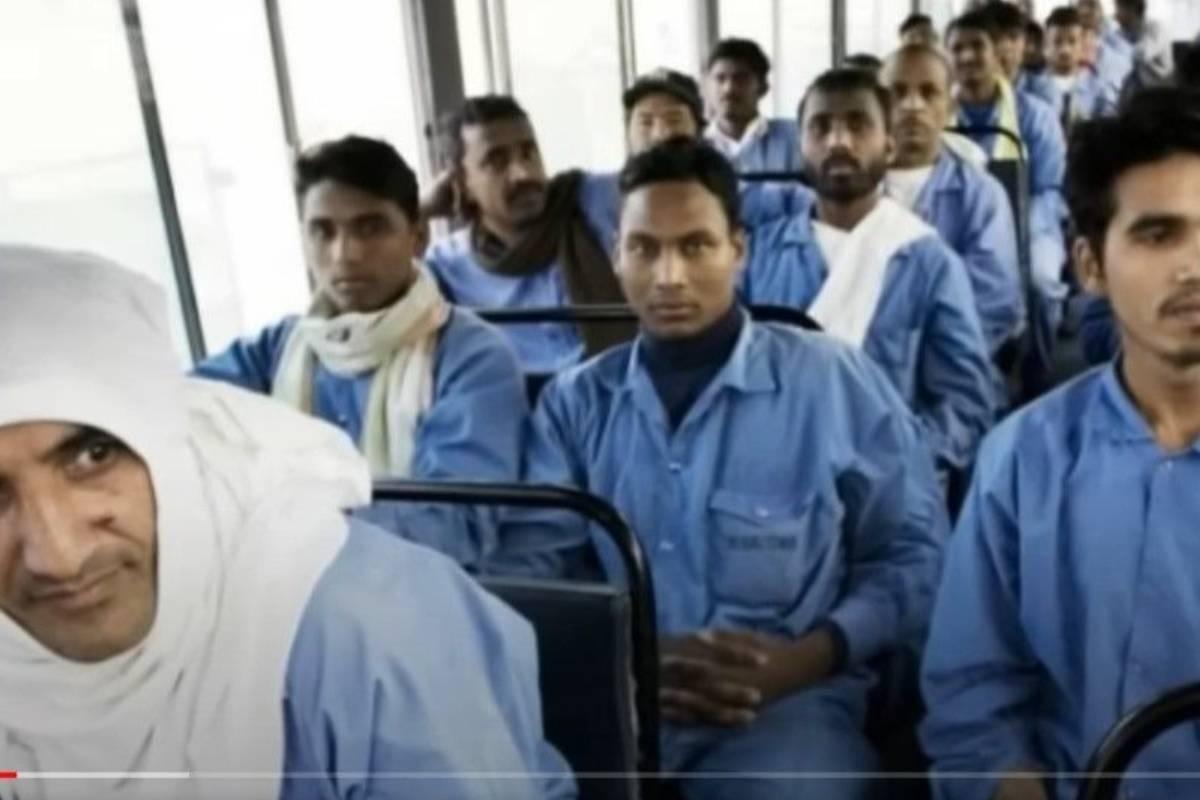
Source: ValerieTaras/YouTube
They were described as “accidents.” When these people pass on, their families won’t be free; they simply inherit the debts.
The City of Gold
The place where the foreigners live is called Sonapur, which is not on the map. The name means “City of Gold.” It is home to more than 150,000 workers, mostly from Pakistan, India, and China.
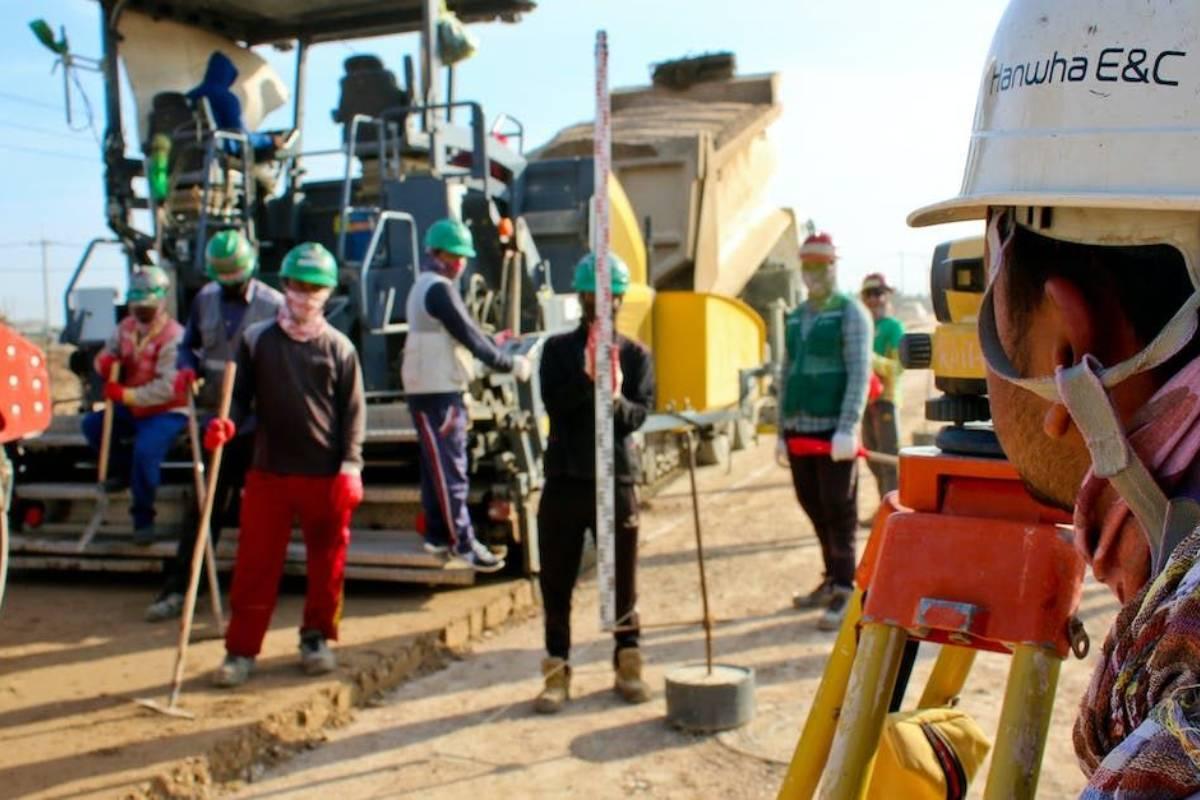
Source: Pexels
Some workers live in small cubicle-like concrete buildings, while others live in camps. Most of the camps and the surrounding areas reek of sweat and sewage.
Missing Citizens
A Human Rights Watch study found out about the cover-up of the true extent of workers that have passed on. They passed away from overworking, heat exhaustion, and suicide.
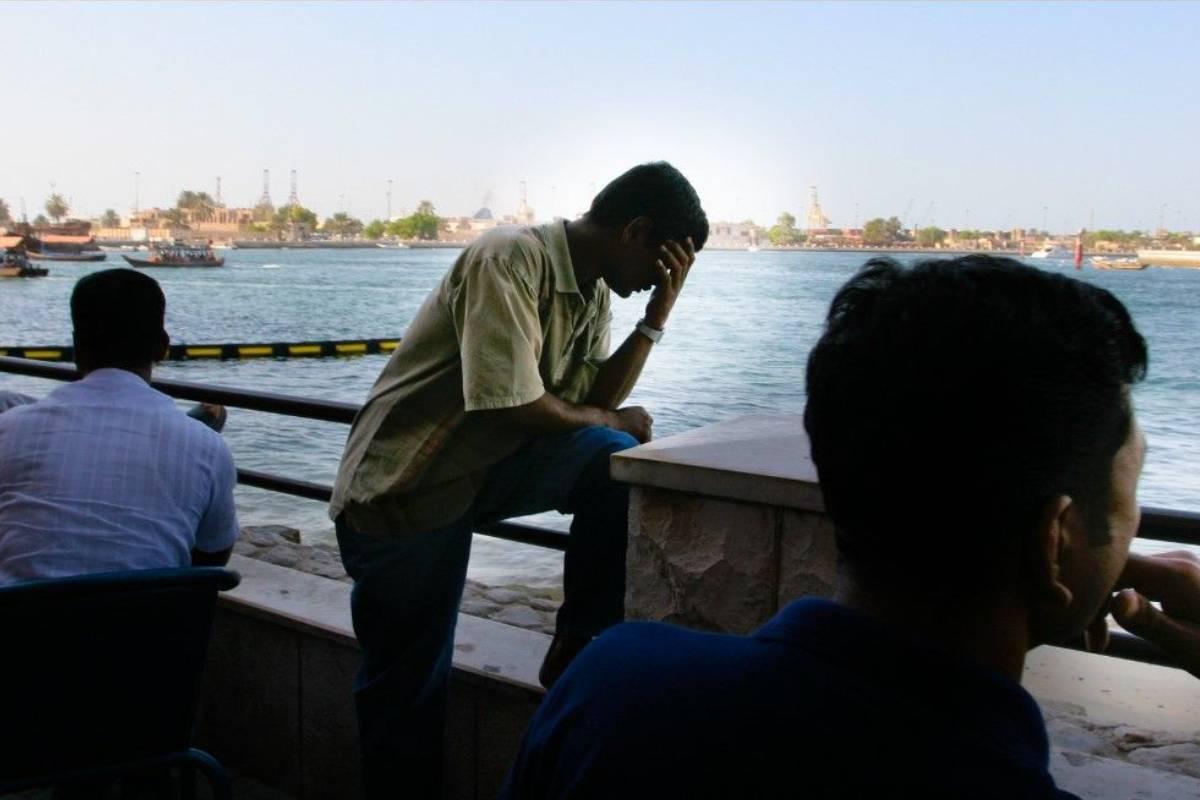
Source: JulienWarnand/Flickr
The Indian consulate registered about 971 missing nationals who went to Dubai but were no longer heard from. After this figure was leaked, the Indian consulate was told to stop counting.
Tiny Metal Houses
Every evening, hundreds of thousands of young men who continuously build Dubai are shuttled from their sites to a vast concrete wasteland on the outskirts of Dubai, quarantined away from the city and their handiwork.
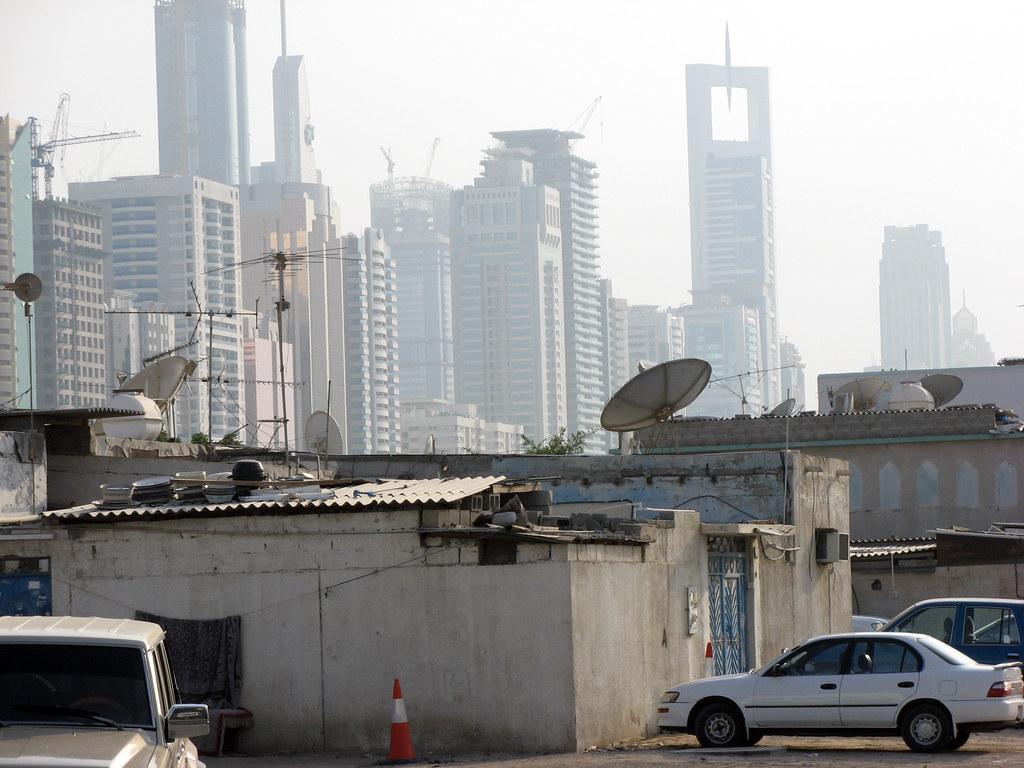
Source: TA/Pinterest
A few years ago, these foreigners were transported to and fro on cattle trucks until the expat complained that it was unsightly. Now they are being bussed around in tiny metal houses that function like greenhouses in the desert heat.
A Predicament for Everyone
Not only are men in this predicament but women are also involved. Amongst the foreigners that go to Dubai to work, some are treated better than others. An American expat observed some European and Filipino women at work.
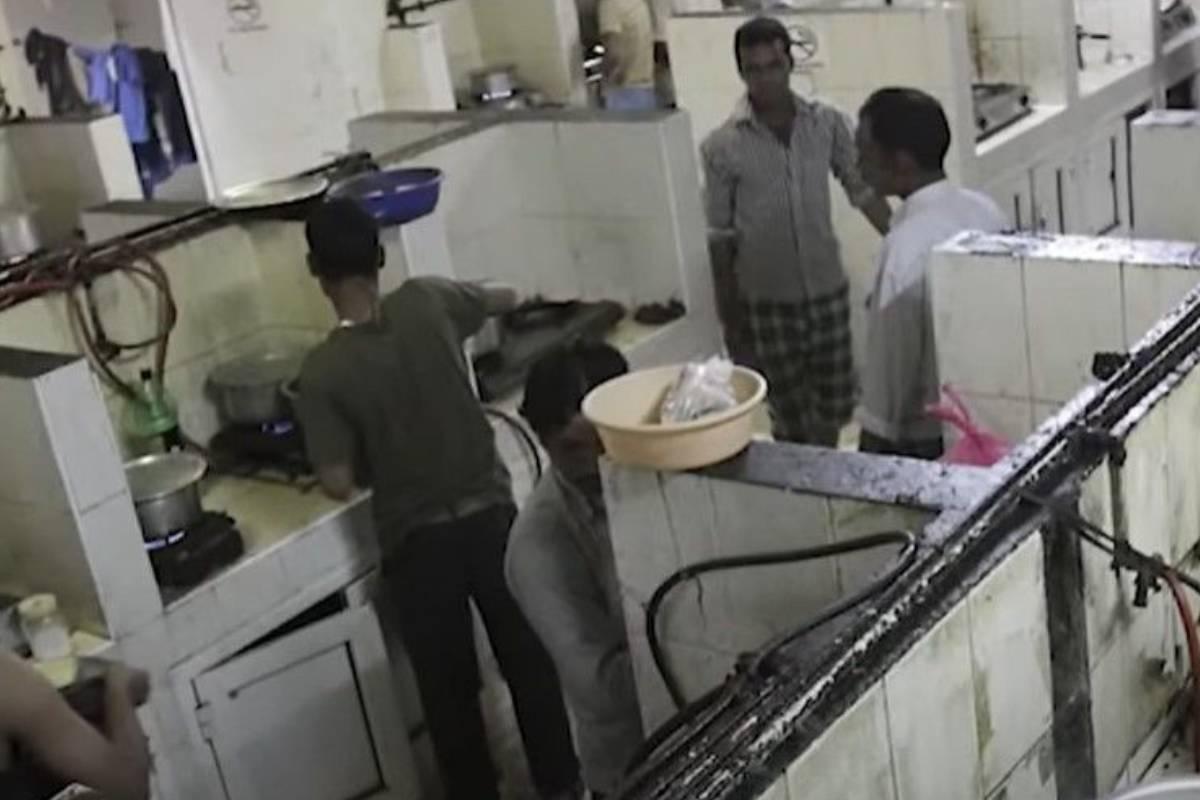
Source: AfricaReloaded/YouTube
She noticed that for the same jobs they did, the European woman was paid four times the wages of the Filipino woman.
Filipinos Versus Indians in Dubai
The expats in Dubai like to get people to do all the work for them. There is a high demand for nannies in Dubai. At first, they preferred Filipinos because they felt they were “more intelligent than Indians.”
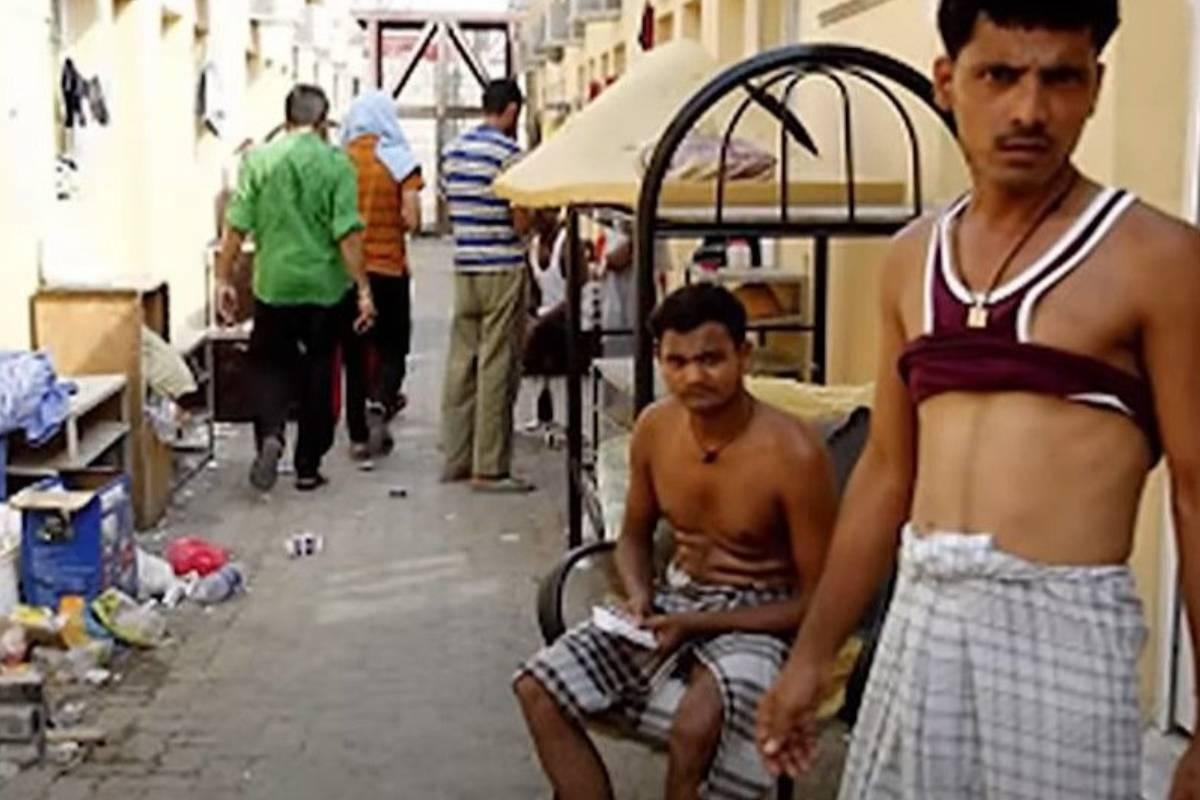
Source: AfricaReloaded/YouTube
They later started to prefer Indians because the Filipinos were starting to become too expensive for maids.
The Dark Side of Dubai: Open Secrets
It is an open secret that once an expat hires a maid, they have absolute power over her. They can take her passport, which isn’t new as everyone does it. They can decide when to pay her and when or if she ever takes a break.
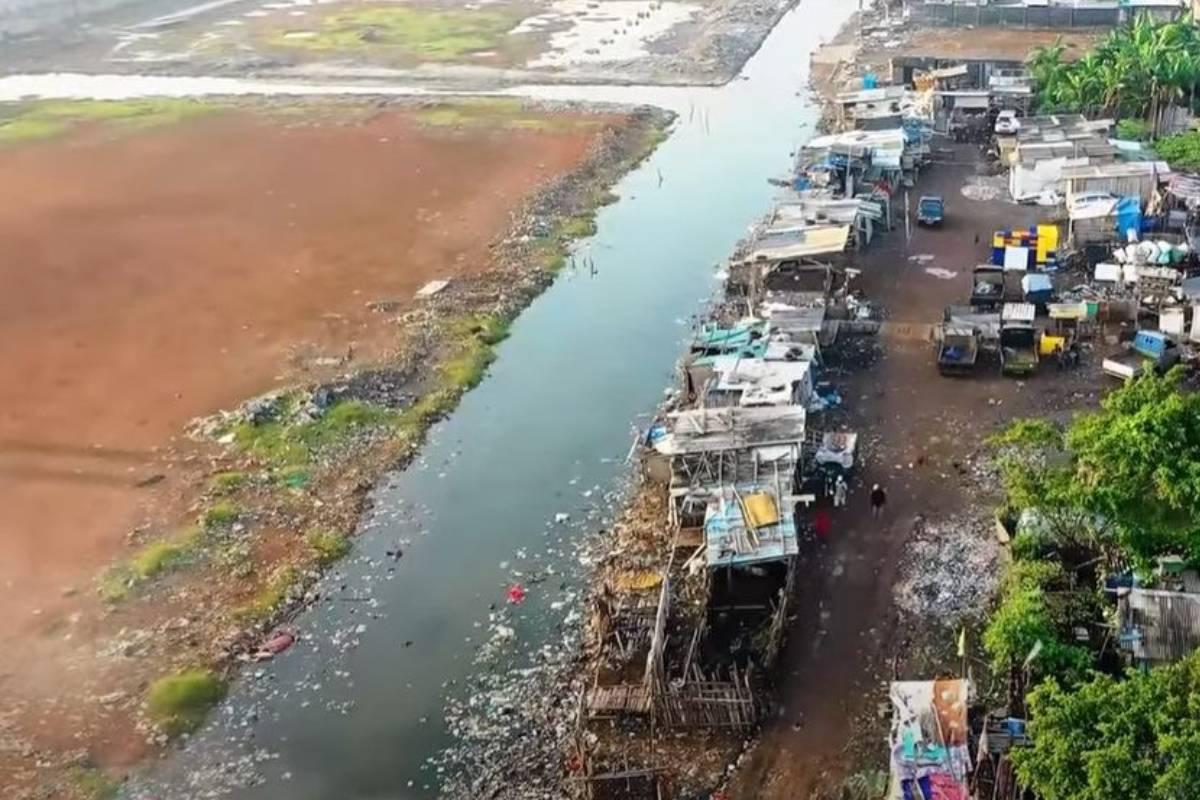
Source: InterestingFlow/YouTube
They can also decide who she talks to, and since she would not be able to speak Arabic, she would not be able to escape.
A Filthy Private Villa For Women
The only hostel available for women in Dubai is a filthy private villa that is on the brink of being repossessed. The hostel is filled with maids that ran away from their terrible employers.
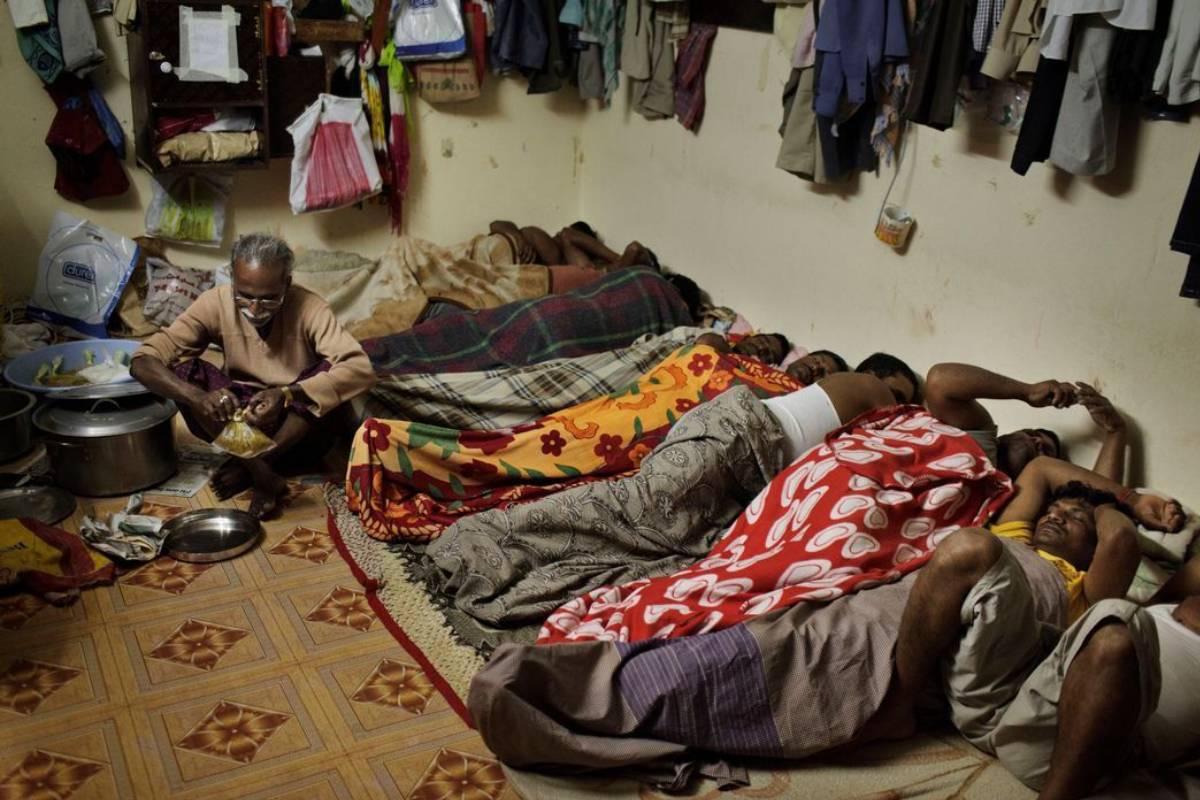
Source: MagnumPhotos/Pinterest
Many Indian and Filipino women live in this run-down building with no chance of returning to their country because their passports were seized. Some of these women said they preferred to live in the building than to stay with their former employers, due to the abuse they suffered there.
A Tourist-Reliant City
There was a time in Dubai when oil production in the country accounted for 50% of Dubai’s gross domestic input. As of now, the government greatly relies on the revenue they make from tourism.
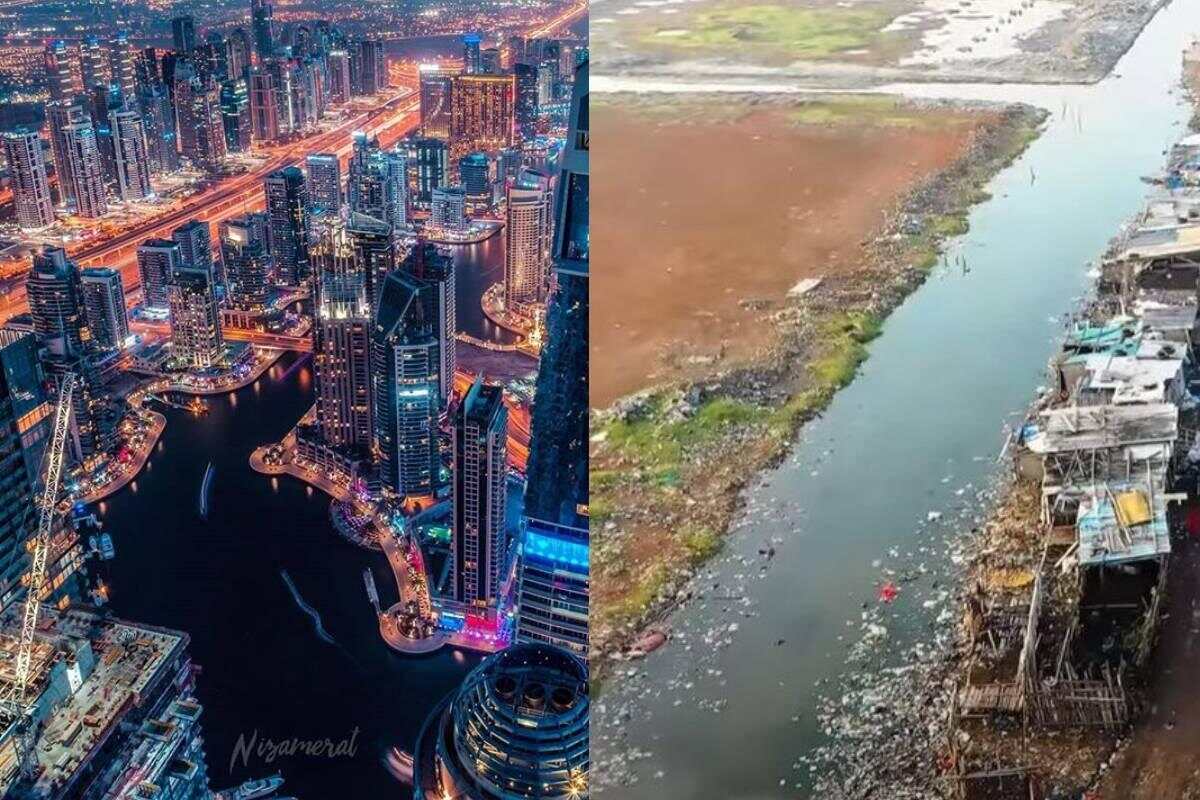
Source: YouTube
They must keep building eye-catching places to ensure more tourists come to their country. And to keep doing that, they would need more laborers. So will this dark side of Dubai ever see the light?
